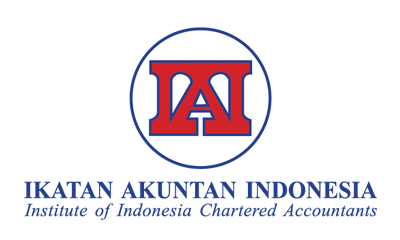PENGARUH KONFLIK KEHARUSAN AKUNTABILITAS TERHADAP KINERJA KERJA PEMERINTAH DAERAH
Abstract
Full Text:
PDFReferences
Akbar, R., Pilcher, R., & Perrin, B. (2012). Performance Measurement in Indonesia: the Case of Local Government. Pacific Accounting Review, 262-291.
Anechiarico, F., & Jacobs, J. B. (1994). Visionof Corruption Control and the Evolution of American Public Adminstration . Public Adminstration Review, 54(5), 465-473.
Bedeian, A. G., & Armenakis, A. A. (1981). A Path-Analytic Study of the Consequences of Role Conflict and Ambiquity. The Academy of Management Journal, 417-424.
Bovens, M. (1998). The Quest of Responsibility.
__________ (2005). Two Concept of Accountability. The Oxford Handbook of Public Management, 182-208.
Braun, V., & Clarke, V. (2006). Using Thematic Analysis in Psychology. Qualitative Research in Psychology, 3 (2), 77-10.
Brody, E. (2002). Accountability and public trust. Adminstration and Society.
Caseley, J. (2006). Multiple Accountability Relationship and Improved ServiceDelivery Performance in Hyderabad City, Southern India. International Review of Admnistrative Sciences, 531546.
Creswell, J. W., & Clark, F. L. (2011). Designing and Conducting Mixed Methods Research . Thousand Oaks, California: Sage Publications, Inc.
Dicke, L. (2002). Ensuring Accountability in Human Service Contracting. Public Productivity & Management Review, 22:502-516.
DiMaggio, P., & Powell, W. (1983). The Iron Cage Revisited: Institutional Isomorphism and Collective Rationally in Organizational Field. American Sociological Review, Vol. 48: 147-160.
Dubnick, M. (2005). Accountability and the Promise of Performance . Public Performance & Management Review, 28, 236-267.
Dubnick, M. J., & Romzek, B. Z. (1991). Politics and the Management of Expectation. American Public Administration, New York, MAcmillan.
Dubnick, M., & Yang, K. (2009). The Pursuit of Accountability: Promise, Problems, and Prospects. American Society for Public Administration Annual Conference (pp. 1-32). Armonk, New York: M. E. Sharpe.
Ebrahim, A. (2003). Making sense of accountability: Conceptual perspectives for Northern and Southern nonprofits. The American Review of Public Adminstration.
Fry, L., Futrell, C., Parasuraman, A., & Chmielewski, M. (1986). An Analysis of Alternative Causal Models of Salesperson Role Percetion and WorkRelated Attitudes. Journal of Marketing Research, 153-163.
Halachmi, A. (2002). A brief note on the methodology of measuring productivity
of services at the local level. International Journal of Organization Theory and Behavior, 215-218.
Hansen, J. R., & Host, V. (2012). Understanding the Relationship Between Decentralization Organizational Decesion Structure, Job Context, and Job Satisfaction-A Survey of Danish Public Managers. Review of Public Personell Administration, 32(2) 288-308.
Hartono, J. (2011). Konsep dan Aplikasi Structural Equation Modeling berbasiskan varian dalam penelitian bisnis. Yogyakarta: STIM YKPN .
Houston, D., Meyer, L. H., & Paewai, S. (2006). Academics Staff Workload and Job Satisfaction: Expectation and Values in Academe. Journal of Higher Education Policy and Management, 1730.
(n.d.). Instruksi Presiden, Nomor 7 Tahun1999 Laporan Akuntabilitas Kinerja Institusi Pemerintah.
Johnston, J., & Romzek, B. (1999). Contracting and accountability in state Medicaid reform: Rhetoric, theories, and reality. Public Administration Review, 59, 383-399.
Jos, P., & Tompkins, M. (2004). The Accountability Paradox in an Age of Reinvention. Administration and Society, 36, 255-281.
Kim, S. E. (2005). Balancing competing accountability requirements. Public Performance & Management Review, 29, 145-163.
Kim, S. E., & Lee, J. W. (2009). Impact of Competing Accountability Requirements on Perceived Work Performance. The American Review of Public Administration, 100-118.
Koppell, J. (2005). Pathologies of accountability. Public Administration Review, 65, 94-108.
London, M., & Sminther, J. W. (1997). Accountability: The Achilles' Heel of Multisource Fedback. Group and Organization Management, 22, 162185.
Lyons, T. F. (1971). Role Clarity, Need for Clarity, Satisfaction, Tension, and Withdrawal. Organizational Behavior and Human Performance, 99-110.
Meyer, J. W., & Rowan, B. (1977). Institutionalized Organizations: Formal Structure as Myth and Ceremony. American Journal of Sociology, 340:363.
Nurkhamid, M. (2008). Implementasi Inovasi Sistem Pengukuran Kinerja Instansi Pemerintah. Jurnal Akuntansi Pemerintah, 45-76.
O'Connell, L. (2006). Emergent Accountability in state-Local Relation: Some Lessons from Solid Waste Policy in Kentucky. Andminstration and Society, 38, 500515.
Page, S. (2004). Measuring Accountability for Result in Interagency Collaboratives. Public Adminstration Review, 64, 591606.
Posner, P. (2000). Accountability challenges of third-part government. Oxford, UK: Oxford University Press.
Romzek, B. (2000). Dynamics of Public Sector Accountability in Era of Reform. International Review of Administrative Science, 21-44.
Romzek, B. S., & Ingraham, P. (2000). Cross pressures of accountability: Initiative, command, and failure in the Ron Brown plane crash. Public Administration Review, 60, 240-253.
Romzek, B., & Dubnick, M. (1987). Accountability in the Public Sector: Lesson from the Chalengger Tragedy. Public Admistration Review, 47, 227238.
Schwartz, R., & Sulitzeanu-Kenan, R. (2004). Managerial Values and Accountability in Pressures: Challenges of Crisis and Disaster. Journal of Public Adminstration Research and Theory, 14, 79-102.
Seldon, S. C., Brewer, G. A., & Brudney, J. L. (1999). Reconciling Competing Values in Public Adminstration: Understanding the Admnistrative Role Concept. Admnistration and Society, 31(2) 17-30.
Smith, F. J. (1976). Index of Organizational Reaction (IOR). JSAS Catalog of Selection Documents in Psychology.
Solikin, A. (2005). Accountability Reporting in Indonesia: When Self-Serving Attributions Exaggerate Perceived Performance. Jurnal Akuntansi Pemerintah, 21-33.
Tetlock, P. (1985). A Social Check on the Fundamental Attribution Error. Social Psychology Quarterly, 227-236.
Tsui, A., Pearce, J. L., Porter, L. W., & Tripoli, A. M. (1997). Alternative Approachess to Employee-organization relationship: Does Investment in employees Pay off. Academy of Management Journal, 40(5)1089-1022.
Wang, X. (2002). Assesing Administrative Accountability: Result from a National Survey. American Review of Public Administration, 32, 350-370.
DOI: https://doi.org/10.35591/wahana.v16i2.77
Wahana: Jurnal Ekonomi, Manajemen dan Akuntansi
ISSN : 2685-1415 (Online) | 1410-8224 (Print)
Published by Pusat Penelitian dan Pengabdian Masyarakat Politeknik YKPN Yogyakarta.
Jl. Gagak Rimang No. 2-4 Balapan, Yogyakarta 55222
Phone (0274) 560159, 562317, 513413, 563516 Fax. (0274) 561591
 This work is licensed under a Creative Commons Attribution-ShareAlike 4.0 International License.
This work is licensed under a Creative Commons Attribution-ShareAlike 4.0 International License.













